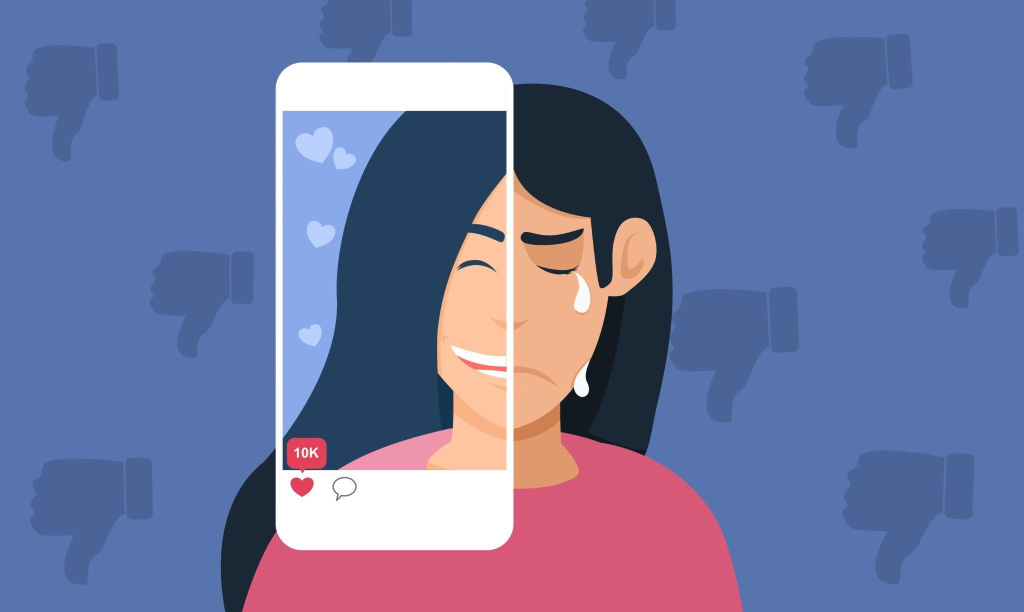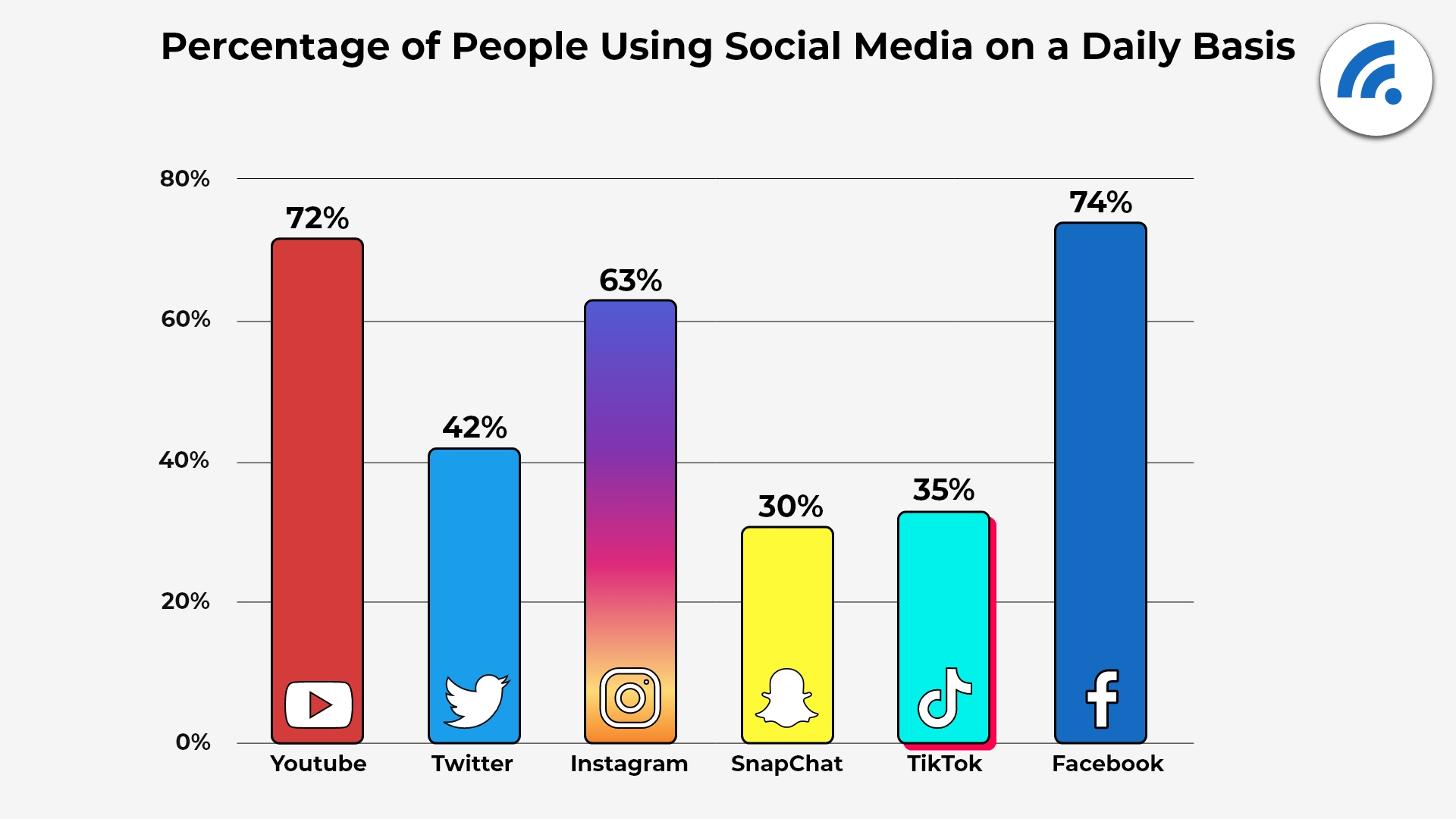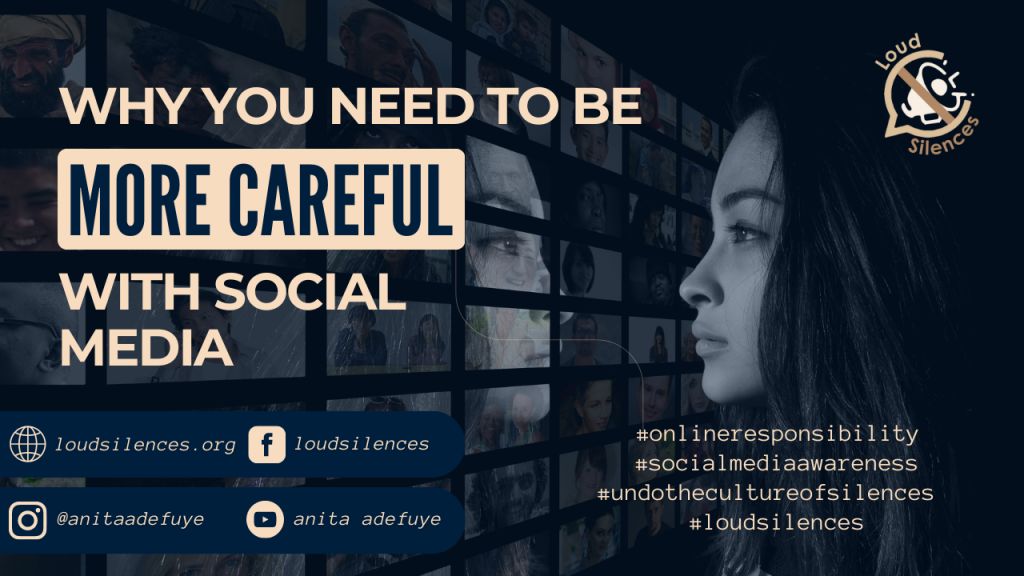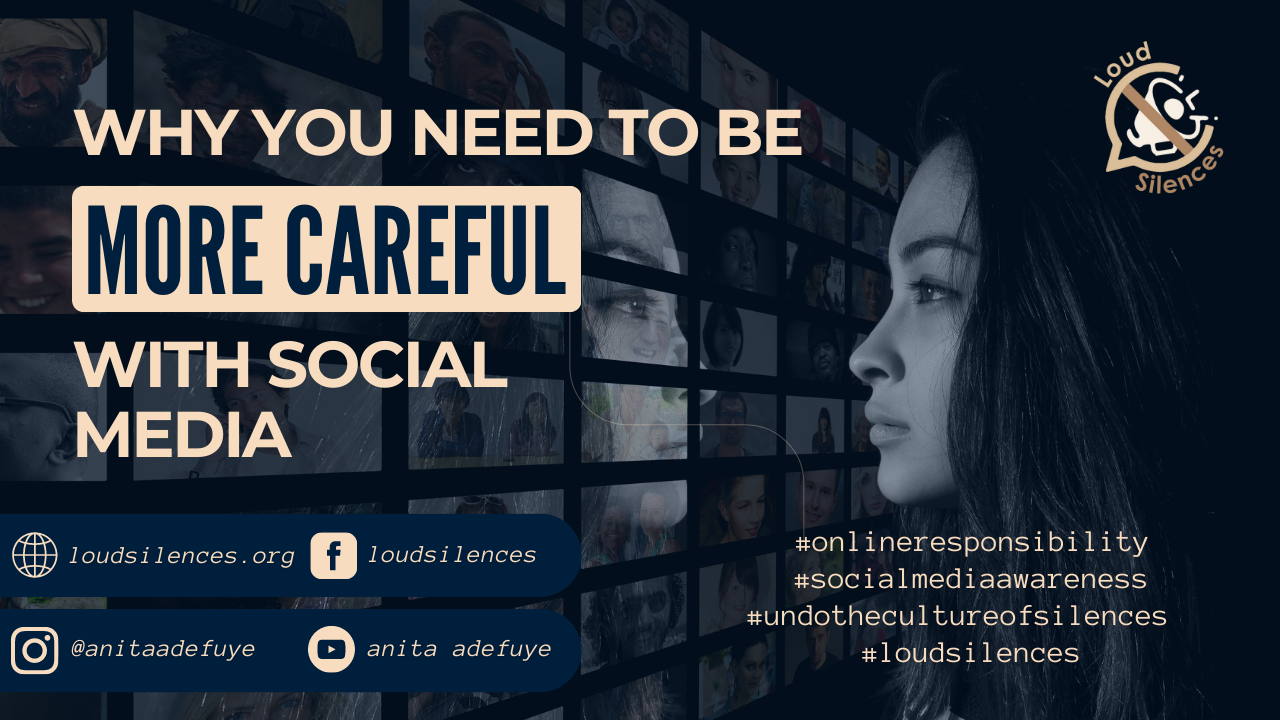Lately, I’ve been scrolling through Instagram excessively. I realized that I’ve been using it as a distraction, but unfortunately, this habit has led to feelings of inadequacy and dissatisfaction. I found myself constantly comparing my life to the ‘seemingly perfect’ lives of influencers.
Just like I put myself under undue pressure over the many real-vs-fake posts, there are many people out there who do the same. That’s why in today’s post, we’re going to talk to YOU (yes, YOU) about the significance of caution in social media.
The Social Media Toxicity Test
Questions for you:
- Do you find that you’re constantly glued to your phone because of some social media apps
- Do some social media posts you see tend to affect your moods, sometimes leaving you excited and, at other times, depressed?
- Are you constantly worried about what your social media friends and followers think of your social media image?
- Are you prone to making choices or buying things because of what you see on social media?
If you answered ‘YES’ twice or more, it suggests that your social media use has gotten toxic. Using social media a lot is not wrong; however, your social media use becomes toxic when it negatively impacts the aspects of your life, including productivity, moods, emotions, lifestyle, choices, etc.
“If you are on social media, and you are not learning, not laughing, not being inspired or not networking, then you are using it wrong.”
Germany Kent
How negatively-affected you are by what you see online does not necessarily mean you are a social media addict. If you’re an Instagram user who follows a lot of users who make posts flaunting “perfect bodies,” you may find yourself feeling dissatisfied with how your body looks.
Pause to consider
If you constantly wish, perhaps for a straighter nose or a thinner waist, you need to ask yourself certain questions:
- Do I truly have a problem with that part of my body? And why?
- Or is it because of what I have been seeing on social media (and even around me?)
These questions will help you understand what triggered those desires. When you start to desire things or make choices based on what you see other people do, the outcome of acting on those wishes or choices will never truly satisfy you.
Other people’s actions and possessions will continually threaten you. And you’ll always be trying to measure up to the standards you’ve set based on what you see in people. It is a cycle of discontentment that would lead you to dissatisfaction and more dissatisfaction.

We must understand that many social media users, influencers, and celebrities have painted such perfect pictures of their lives, consciously and unconsciously. And these seemingly perfect pictures have led to many people feeling inadequate in different respects, including:
- Looks
- Work
- Family
- Social life
- Connections
- Property
- Status
Many of us have fallen victim to feeling inadequate because of the perfect lives that we see being portrayed on social media. And that is nothing to feel ashamed of; it is human to desire personal improvement.
Note
Using social media for guidance in habits, choices, and decisions is not necessarily a bad thing. Social media is meant to be an advantage to this generation, but you need to be careful with it. Here are three reasons why you need to understand the significance of caution in social media:
THREE REASONS WHY YOU NEED TO BE CAREFUL WITH SOCIAL MEDIA
SOCIAL MEDIA CONTAINS NON-FACTUAL INFORMATION
People fabricate much of what you see on social media, including “supposed factual” information, such as health facts. One common example of non-factual information widely believed to be authentic on social media is the claim that the COVID-19 vaccines cause infertility.
There is no scientific evidence to support this claim. Despite numerous medical experts like the Centers for Disease Control and Prevention (CDC) and the World Health Organization (WHO), debunking such a fallacious claim, social media users continue to share in the form of misleading or false memes, posts, and articles.
No doubt, this untruthful claim impacted the decisions of people on whether to take the vaccine or not. That’s why it’s better to verify information from a trusted source before making decisions based on social media. You can verify through Google or a trustworthy source on social media.
SOCIAL MEDIA USERS OFTEN MANIPULATE CONTENT
Don’t let social media mislead you based on the content you see – visual or text. It’s very easy to create false impressions with images using Snapchat filters and other photo editing apps.
Some social media users would even digitally manipulate their pictures to accentuate their body parts and promote unreal images. Surprisingly, these manipulations often deceive a lot of people, leading many to set impossible standards for themselves.
There are cases where influencers often falsely claim quality, designer brands, etc. for jewelry, cars, or other property they flaunt. Although, upon exposing those false claims, many users have already developed a desire to acquire similar properties to flaunt online.
SOCIAL MEDIA CAN BECOME AN OVERWHELMING INFLUENCE
We continue to find many social media users experiencing mental health issues and an overwhelming desire to meet societal standards. According to a survey of nearly 1,500 teenagers and young adults, Instagram is the social media network that has the most negative impact on mental health and well-being.
Although Instagram supports self-expression and self-identity, it was linked to high anxiety levels, depression, bullying, and FOMO, also known as “fear of missing out” in many young people.
Moreover, people who spend a gaping amount of time on social media platforms tend to experience problems like anxiety, psychological distress, and body image issues. Even on social media platforms like LinkedIn, it’s easy to fall into a habit of comparing yourself to others.
I was once there myself; it’s so easy to fall into this trap without realizing it. At one point, I always made sure that the selfies I posted on social media were the best ones.
I always wanted to look perfect, and so I would always linger over what picture to post. “In which of these photos is my nose angled more perfectly”? “Do I look better when I smile widely or with my mouth closed”? I would struggle to get the perfect shot – “my head had to be set the right way, and my smile must reveal the right amount of teeth.”

The act of taking selfies turned into a competition to capture the perfect shot for my social media accounts. And when I eventually posted the selfies on social media, I did so with high expectations of engagement from admiring people. Many, many times, the feeling of disappointment arose and that would lead to feelings of anxiety.
THREE RED FLAGS THAT SIGNAL TOXIC SOCIAL MEDIA USE
Social media is fun and informative and helps you connect with people you wouldn’t have met otherwise. However, it’s easy for social media use to become toxic and start affecting various aspects of your life negatively. Here are three red flags that signal your social media use has become toxic:
AGITATION
If people’s posts, comments, or the thoughts you see spread around social media frustrate you constantly, it shows that you need to reduce your social media use.
Parts of social media that may frustrate you can include people oversharing, highly political posts, posts from people that you find upsetting, and so on.
Ultimately, it doesn’t matter what the cause of your annoyance is, but that you’re in a state of consistent agitation. This inevitably spills over into other areas of your life, like relationships, work, etc.
COMPARISON
One of the things that can make social media consumption so unhealthy is when you’re paying too much attention to people’s success stories.
Most people don’t share their failures but constantly post their successes and best images. If you find yourself comparing your life, mental well-being, body, or anything else to others on social, it might be time to step back.
“Comparison is the thief of joy.”
Teddy Roosevelt
Why compare yourself to strangers on the internet and choose misery when you can focus on being the best version of yourself? Sounds cheesy, but you know I’m right.
WASTED TIME
You tell yourself you’ll quickly check Instagram or Tik Tok or whatever social media you prefer…but two hours later, you’re still scrolling. It’s not wrong to spend time on social media, but do you want to spend that much time?
Think of all the other things you could be doing that are ultimately more rewarding. If you cannot break away from that, you need a healthy social media cleanse.
A study by Pew Research found that most social media users are dependent on the platforms and being that way often causes people to be less open-minded.

In conclusion, social media is an excellent tool when used in moderation, but also be familiar with the significance of caution. If you notice, or begin to notice, any of these warning signs, you may need to pause and reevaluate your social media usage.
Remember that social media should never take over your life or negatively impact your productivity, moods, emotions, lifestyle, choices, or relationships. You have the power to control your social media use and make it work for you, not against you.
Feranmi Ademola

And I bet you haven’t already, so be sure to grab a copy of Reve-Healed. It’s definitely worth checking out!

Leave a Reply